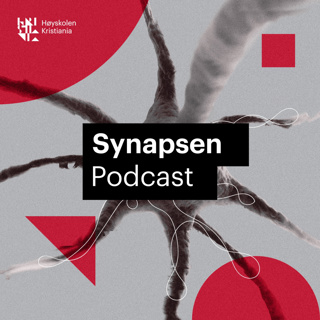
27. Charles S. Cockell — The Equations of Life: How Physics Shapes Evolution
We are all familiar with the popular idea of strange alien life wildly different from life on earth inhabiting other planets. Maybe it’s made of silicon! Maybe it has wheels! Or maybe it doesn’t. In The Equations of Life, astrobiologist Charles S. Cockell makes the forceful argument that the laws of physics narrowly constrain how life can evolve, making evolution’s outcomes predictable. If we were to find on a distant planet something very much like a lady bug eating something like an aphid, we shouldn’t be surprised. The forms of life are guided by a limited set of rules, and as a result, there is a narrow set of solutions to the challenges of existence. In addition to these topics, Dr. Shermer and Dr. Cockell discuss: the origins of life on earth; the possibility of finding life on Mars and, if we did, would it have something like DNA, albeit with different base pairs?; Fermi’s paradox: if the laws of physics and evolution are so common throughout the universe, and there are so many earth-like planets in our galaxy alone (estimated to be in the billions), where is everyone?; humanity becoming an interplanetary species (possibly the first), and if so what type of governing system we should employ for, say, the first colonies on Mars.
25 Jun 20181h 27min

26. Dr. Stephen T. Asma — Why We Need Religion
In this dialogue Dr. Michael Shermer talks with philosopher Stephen T. Asma, a Professor of Philosophy and Founding Fellow of the Research Group in Mind, Science, and Culture at Columbia College, Chicago. His new book is Why We Need Religion, in which he argues that, like art, religion has direct access to our emotional lives in ways that science does not. Yes, science can give us emotional feelings of wonder and the sublime—we can feel the sacred depths of nature—but there are many forms of human suffering and vulnerability that are beyond the reach of help from science. Different emotional stresses require different kinds of rescue. Unlike secular authors who praise religion’s ethical and civilizing function, Asma argues that its core value lies in its emotionally therapeutic power. Asma and Shermer also discuss the relationship of science and religion, why people believe in God, atheism vs. agnosticism, the “new atheists”, humanism and the need for social and spiritual community, and other hot topics.
22 Jun 20181h 22min

25. Richard Rhodes — Energy: A Human History
This is one of the best dialogues Dr. Shermer has ever had in his quarter century of talking to the leading scientists and scholars of our time. Listen in as he and Pulitzer Prize- and National Book Award-winning author Richard Rhodes discuss nuclear weapons, North Korea, Iran, and Russia, the psychology of Mutual Assured Destruction (MAD), human violence and its causes, the “Bullet Holocaust” (the millions of Jews and others shot to death in Eastern Europe before the death camps ramped up their killing by gas), how people become serial killers (the socialization of violence), and his new book Energy: A Human History, which reveals the fascinating history behind energy transitions over time—wood to coal to oil to electricity and beyond. People have lived and died, businesses have prospered and failed, and nations have risen to world power and declined, all over energy challenges. Ultimately, the history of these challenges tells the story of humanity itself. In Energy, Rhodes highlights the successes and failures that led to each breakthrough in energy production; from animal and waterpower to the steam engine, from internal-combustion to the electric motor. He addresses how we learned from such challenges, mastered their transitions, and capitalized on their opportunities. Rhodes also looks at the current energy landscape, with a focus on how wind energy is competing for dominance with cast supplies of coal and natural gas. He also addresses the specter of global warming, and a population hurtling towards ten billion by 2100.
29 Mai 20181h 19min

24. Dr. Alan Stern and Dr. David Grinspoon — Chasing New Horizons: Inside the Epic First Mission to Pluto
Listen in on this remarkable conversation with mission leader Dr. Alan Stern and co-author of the spell-binding new book Chasing New Horizons, Dr. David Grinspoon, as they recount the story of the men and women behind this amazing mission: of their decades-long commitment and persistence; of the political fights within and outside of NASA; of the sheer human ingenuity it took to design, build, and fly the mission; and of the plans for New Horizons’ next encounter, 1 billion miles past Pluto in 2019. Told from the insider’s perspective of mission leader Dr. Alan Stern and others on New Horizons, and including two stunning 16-page full-color inserts of images, Chasing New Horizons is a riveting account of scientific discovery, and of how much we humans can achieve when people focused on a dream work together toward their incredible goal. Nothing like this has occurred in a generation―a raw exploration of new worlds unparalleled since NASA’s Voyager missions to Uranus and Neptune―and nothing quite like it is planned to happen ever again. The photos that New Horizons sent back to Earth graced the front pages of newspapers on all 7 continents, and NASA’s website for the mission received more than 2 billion hits in the days surrounding the flyby. At a time when so many think that our most historic achievements are in the past, the most distant planetary exploration ever attempted not only succeeded in 2015 but made history and captured the world’s imagination.
22 Mai 20181h 12min

23. Dr. Kenneth R. Miller — The Human Instinct: How We Evolved to Have Reason, Consciousness, and Free Will
Ken Miller is well known for his work in debunking Intelligent Design Creationism, most notably for his testimony in the Dover Pennsylvania trial that demolished the legal strategies of the movement to have creationism taught in public school science classes. His book, Only a Theory: Evolution and the Battle for America’s Soul recounts his experiences and argues why evolution is true. Now, in his new book, Dr. Miller presents a radical, optimistic exploration of how humans evolved to develop reason, consciousness, and free will, contra scientists such as Richard Dawkins and Sam Harris who tell us that our most intimate actions, thoughts, and values are mere byproducts of thousands of generations of mindless adaptation. We are just one species among multitudes, and therefore no more significant than any other living creature. Brown University biology professor Miller contends that this view betrays a gross misunderstanding of evolution. Natural selection surely explains how our bodies and brains were shaped, but Miller argues that it’s not a social or cultural theory of everything. In The Human Instinct, he rejects the idea that our biological heritage means that human thought, action, and imagination are pre-determined, describing instead the trajectory that ultimately gave us reason, consciousness and free will. A proper understanding of evolution, he says, reveals humankind in its glorious uniqueness—one foot planted firmly among all of the creatures we’ve evolved alongside, and the other in the special place of self-awareness and understanding that we alone occupy in the universe.
19 Mai 20181h 38min

22. Dr. Gregory Berns — What It’s Like to Be a Dog…and Other Adventures in Animal Neuroscience
In this wide-ranging dialogue (recorded on September 1, 2017) on the nature of consciousness Dr. Michael Shermer talks with Dr. Gregory Berns, Distinguished Professor of Neuroeconomics and Director of the Center for Neuropolicy and Facility for Education and Research in Neuroscience. Dr. Berns is famous for his use of fMRI to study canine cognitive function in awake, unrestrained dogs. The goals of his research are to non-invasively map the perceptual and decision systems of the dog’s brain and to predict likelihood of success in service dogs. He also uses diffusion tensor imaging (DTI) to reconstruct the white matter pathways of a wide variety of other mammals, including dolphins, sea lions, coyotes, and the extinct Tasmanian tiger. Shermer and Berns address the so-called “Hard Problem of Consciousness” of “what is it like to be a bat (or dog)?” What is it like to be another sentient being has been impossible to understand until and unless we can get inside the other conscious creature’s head. Now we can thanks to this new technology. Of course, we cannot have a first-person subjective experience of being a dog—and in this sense the “Hard Problem of Consciousness” is something of a conceptual error inasmuch as it can never be answered in this first-person subjective sense, but we can come close to understanding what dogs (and other conscious creatures) are thinking and feeling.
16 Apr 20181h 9min

21. Dr. Leonard Mlodinow — Elastic: Flexible Thinking in a Time of Change
Out of the exploratory instincts that allowed our ancestors to prosper hundreds of thousands of years ago, humans developed a cognitive style that Mlodinow terms elastic thinking, a collection of traits and abilities that include neophilia (an affinity for novelty), schizotypy (a tendency toward unusual perception), imagination and idea generation, pattern recognition, mental fluency, divergent thinking, and integrative thinking. In this remote Science Salon (recorded on March 22, 2018), Dr. Shermer begins by asking Dr. Mlodinow what it was like to work with and get to know Stephen Hawking, on which the two worked together on two books. Hawking had to be elastic in his thinking given that his disease prevented him from doing science in the traditional manner. Leonard Mlodinow received his Ph.D. in theoretical physics from the University of California, Berkeley, was an Alexander von Humboldt Fellow at the Max Planck Institute, and was on the faculty of the California Institute of Technology. His previous books include the best sellers Subliminal, War of the Worldviews (with Deepak Chopra), The Grand Design (with Stephen Hawking), and The Drunkard’s Walk, as well as The Upright Thinkers, Feynman’s Rainbow, and Euclid’s Window. He also wrote for the television series MacGyver and Star Trek: The Next Generation.
9 Apr 201851min

20. Dr. Michael Shermer — Heavens on Earth: The Scientific Search for the Afterlife, Immortality, and Utopia
In his most ambitious work yet—a scientific exploration into humanity’s obsession with the afterlife and quest for immortality—bestselling author and skeptic, Michael Shermer, sets out to discover what drives humans’ belief in life after death, focusing on recent scientific attempts to achieve immortality along with utopian attempts to create heaven on earth. For millennia, religions have concocted numerous manifestations of heaven and the afterlife, and though no one has ever returned from such a place to report what it is really like—or that it even exists—today science and technology are being used to try to make it happen in our lifetime. From radical life extension to cryonic suspension to mind uploading, Shermer considers how realistic these attempts are from a proper skeptical perspective. Heavens on Earth concludes with an uplifting paean to purpose and progress and how we can live well in the here-and-now, whether or not there is a hereafter.
25 Mar 201855min




















